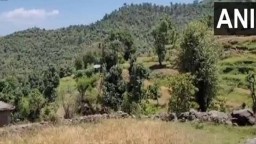Latest News
GHAR GHAR AUSHADHI YOJANA FOR GOOD HEALTH!

When we published a pioneering paper about the pragmatic action plan for the treatment of COVID-19 through Ayurveda, the world was already at the clench of the pandemic. People laughed at us when it appeared online ahead of print on 23 April 2020. Our team of three included two of the greatest Vaidyas of India—Prof. Dr Sanjeev Rastogi of Lucknow and Padmshri Prof. Dr Ram Harsh Singh of Banaras Hindu University. After having saved tens of thousands of lives, today, it is the world’s most cited paper on COVID-19 and Ayurveda. It has been referred by almost all the leading clinical trials related to Indian systems of medicine. Indeed, it has also been cited by the practitioners of modern medicine, including Dr Naresh Trehan, in their research. Our paper also became a leading source of evidence for the Ghar Ghar Aushadhi Yojana (GGAY) of the Government of Rajasthan. Here, in this reappraisal of evidence that accumulated since, I deal with the question if GGAY herbs—Tulsi, Kalmegh, Ashwagandha and Guguchi—can confer good health in general, and help us overcome COVID-19 in particular. Does a question arise that how can these plants be used by the families? With the help of the Department of Ayurveda, information has already been made available. Vaidyas can provide information, but we must be careful not to get into the clutches of the medicalization of Ayurveda. It is the science of life practised in every household. In many viral and other diseases people not only rely on their traditional knowledge and plants available at home. Grandmother's remedies based on local traditional knowledge have been saving lives for generations.
GGAY should not be misunderstood as a plant distribution programme. It also provides ideas related to healthcare and personal protection. It also takes us close to nature. It also helps us prevent multimorbidity by empowering people to take charge of their long-term preventive healthcare. Ayurveda can keep us healthy through herbs, Rasayanas and many non-pharmaceutical interventions such as physical activity and h e a l t h y lifestyles. A fear has been raised that promoting Ay u r ve d a may increase self-medication and thus hamper public health efforts. These are valid assumptions, but discriminatory against Ayurveda. The knowledge here is not limited to medicine. It is a way of life for all in society. Medicalization and condemnation that selfmedication is entirely a problem of traditional medicine constitute an epistemic injustice. Blaming Ayurveda alone and ignoring the widespread self-medication in conventional medicine is flawed and inconsistent with the global misuse of drugs. Educating the population at large to take charge of their preventive health is the way forward. Let us explore the clinical evidence base of both Ayurveda and modern medicine. By now, 4,23,600 research papers have been published on COVID-19. There are 12,267 papers on GGAY herbs, and 2,314 of these are particular about the treatment of COVID-19. Furthermore, there are 5,189 papers that employ Ayurvedic medicinal plants against COVID-19, but often conveniently forget to cite Ayurveda. To give you a little more descriptive statistics, clinical trials published to date have 4,598 papers, including 114 trials in Ayurveda. Beyond COVID-19, there are about one million research papers on the medicinal plants of Ayurveda against enumerable diseases. The basket of facts presented here may or may not give you confidence. For, confidence comes through faith and faith is a personal preference that doesn’t care about evidence; it simply cares about personal predilection.
Guidelines promoted by the conventional medical establishment have limited support in published science—including more than 4000 clinical trials and 217 meta-analyses of clinical trials—yet. To our knowledge, no metaanalysis of clinical trials provides any conclusive evidence whatsoever that one can quote unequivocally. Indeed, the evidence for the contrary is now large. For example, the world’s largest and most talked about SOLIDARITY Trial, coordinated by the World Health Organization has failed to provide unequivocal evidence to save lives. There is neither any evidence for the efficacy of medicines tested through SOLIDARITY Trials, nor they are necessarily safe. On the other, there is evidence to note that Ayurveda classics, contemporary scientific studies, and experiential knowledge have all found Tulsi, Kalmegh, Ashwagandha and Guduchi as life-saving selections against numerous diseases and comorbidities. They also e n h a n c e o v e r a l l immunity and c o n f e r g o o d h e a l t h and wellb e i n g . Ay u r ve d a restores the equilibrium of bodily functions, not just the removal of disease. If Indians fail to extensively employ the world’s longestsurviving healthcare system to treat COVID-19, it will be a great loss to humanity. There are now more than 100 clinical trials that provide reasonable guidance and evidence that Ayurvedic plants such as Tulsi, Kalmegh, Ashwagandha and Guduchi are indeed helpful in the treatment of COVID-19. On prophylactic or preventive aspects, scientific evidence based on long-term research indicates that Ayurveda Rasayanas such as Chyavanprash, Ashwagandha and Guduchi are helpful. Kalmegh is a powerful antiviral herb. A protocol along with supporting evidence has also been presented on prevention and treatment by the Ministry of AYUSH, Government of India. The pandemic has played havoc with more than 65.9 crore confirmed cases and 66.9 lac deaths worldwide as of 29 December 2022. There have been 4.47 crore cases and 5.30 lac deaths during the same period in India. Despite large research and 4,23,600 research publications, there is still no known, clinically proven and completely evidencebased medicine against COVID-19. The widespread failure of socalled mainstream conventional medicine is evident globally now. First, known cases of COVID-19-positive patients treated entirely with Ayurveda should have actually encouraged healthcare policymakers to quickly use Ayurveda. Since then, a large number of publications as noted earlier have confirmed the usefulness of Ayurveda medicines, containing mainly Tulsi, Kalmegh, Ashwagandha and Guduchi, among others. Overall, prompt clinical improvement in all clinical features has been found in both standalone Ayurveda groups and add-on groups that also received modern medicines. The duration of hospital stay in Ayurveda groups gets substantially reduced.
Even the widely promoted non-pharmaceutical interventions against COVID-19 including quarantine, cordon sanitaire and social distancing and healthy lifestyles have their origin in Ayurveda. These are erroneously thought to date back to 14th-century Europe. In reality, these originated in India back in the 5th century BC. In a city now known as Varanasi, a legendary teacher and king of Kashi, Lord Dhanvantari explained to a class of his students how infectious diseases spread, and what needs to be done to contain the social spread of infections. The renowned scholar of Ayurveda and surgery, Sushruta, was one of the students in the class. He compiled one of the most ancient scientific treatises of surgery known to humanity. This treatise now known as Sushruta Samhita made Sushruta the father of Surgery. About the infectious diseases, Sushruta notes: Contact with the body of the infected person, breathing in the air containing the exhaled air of the patient, eating, sleeping and sitting together, using cloths, garlands and cosmetics used by an infected person - all these actions transmit diseases such as skin infections, fever due to infections, pulmonary tuberculosis, ophthalmia or conjunctivitis, and other contagious diseases from one person to the other. Consequently, complete avoidance of these actions is necessary to prevent the transmission of infectious diseases in the community. So, what’s the way forward? Scientific advancements occur only when the knowledge produced by a scientific enterprise is robust, irrefutable and unequivocal. This applies equally to both Ayurveda and conventional medicine. This is important to understand that every healthcare system existing and practised in the world has a primary motive of providing optimal healthcare to their followers. A health care system has an uninterrupted history of its practice and knowledge transference for, over five millennia, itself speaks about the potential utility it may possess. Perpetual animosities between vaidyas and allopaths should end for the common good of humanity. The solutions against COVID-19 are complex, multifaceted and recalcitrant. We, therefore, require evidence-based decision-making on multiple fronts. A way forward is to acknowledge that scientific research has strengthened the evidence base, yet if Ayurveda was non-scientific, it wouldn't have survived 5000 years. Denial of the generations of practice-based evidence, as well as evidence from contemporary studies, is indeed a form of pseudoscience. We must draw on all systems of knowledge rather than be enslaved by western medicine that currently lacks both evidence and directions.










.png)




.png)


.jpg)


